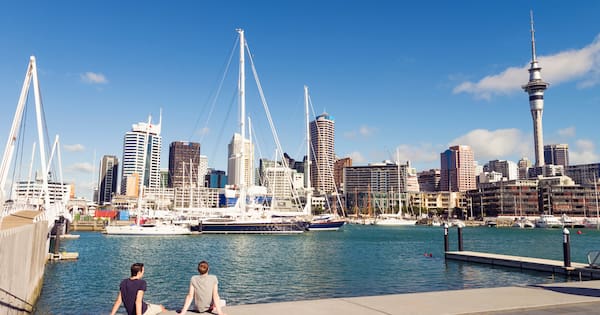
Auckland and Wellington have once again secured their spots in the top 20 of the world’s most liveable cities, according to the latest rankings for 2025. The annual index, released by the Economist Intelligence Unit, places Auckland in a tie for seventh place with Osaka, Japan, marking an improvement from its ninth-place tie last year. Meanwhile, Wellington maintains its position at 20th.
The announcement reinforces New Zealand’s reputation for high quality of life, with both cities consistently performing well in the index. The Economist Intelligence Unit evaluates 173 cities worldwide, assessing factors such as stability, healthcare, culture and environment, education, and infrastructure.
Consistency in Quality of Life
Auckland’s rise in the rankings highlights its ongoing efforts to enhance urban living. The city, known as the “City of Sails,” has previously been recognized as the world’s most liveable city in 2021, while Wellington was ranked fourth that same year. This consistency underscores New Zealand’s commitment to maintaining high standards in urban development and public services.
Across the Tasman Sea, Australian cities also performed well, with Melbourne securing fourth place and Sydney taking sixth. Perth and Brisbane were ranked 15th and 16th, respectively, showcasing the region’s overall strong performance in liveability.
Global Context and Shifts
This year’s rankings saw significant changes at the top, with Copenhagen, Denmark, dethroning Vienna, Austria, for the number one spot. Vienna had held the title for three consecutive years, but the Danish capital’s comprehensive urban policies and cultural offerings have propelled it to the forefront.
“Despite last year’s regime change, Syria’s capital city continues to be scarred by years of civil war and has seen no improvement in liveability,” wrote the authors of the report.
On the opposite end of the spectrum, Damascus, Syria, remains the least liveable city, a stark reminder of the ongoing challenges faced by cities in conflict zones.
Expert Insights and Future Implications
Experts suggest that Auckland and Wellington’s sustained high rankings are a testament to New Zealand’s effective governance and investment in public infrastructure. Dr. Jane Smith, an urban development researcher, notes, “New Zealand’s cities are a model of how urban areas can balance growth with sustainability and quality of life.”
Looking ahead, the focus for Auckland and Wellington will likely be on maintaining their liveability amidst global challenges such as climate change and economic shifts. The cities’ ability to adapt and innovate will be crucial in retaining their positions in future rankings.
As New Zealand continues to draw attention for its liveability, the government and local councils are expected to leverage these rankings to attract talent and investment, further bolstering their global standing.
Conclusion
The latest liveability rankings not only celebrate Auckland and Wellington’s achievements but also set the stage for future developments. With a focus on sustainable urban planning and community well-being, New Zealand’s cities are well-positioned to continue thriving on the global stage.





